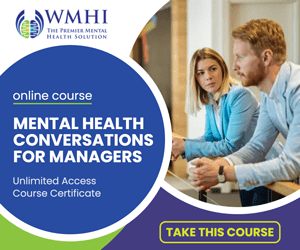Attention Deficit Hyperactivity Disorder (ADHD) is a neurodevelopmental disorder that affects both children and adults. It is characterized by persistent patterns of inattention, hyperactivity, and impulsivity. ADHD can have a significant impact on an individual’s daily functioning, academic or work performance, and overall quality of life. This article aims to provide a comprehensive understanding of ADHD, including its symptoms, causes, and available treatment options.
Symptoms of ADHD
ADHD is often categorized into three subtypes, based on the predominant symptoms exhibited:
- Inattentive Type: Individuals with this subtype struggle with sustaining attention, being easily distracted, and frequently making careless mistakes. They may have difficulty organizing tasks and following instructions.
- Hyperactive-Impulsive Type: This subtype is characterized by excessive physical activity, restlessness, and difficulty staying seated. Impulsivity is also a prominent feature, leading to impulsive decision-making and interrupting others.
- Combined Type: This is the most common subtype, where individuals exhibit a combination of inattentive, hyperactive, and impulsive symptoms.
- Causes of ADHD: While the exact cause of ADHD is still not fully understood, research suggests that a combination of genetic, neurological, and environmental factors contribute to its development. Some key factors include:
- Genetics: Studies have shown that ADHD tends to run in families, indicating a genetic component. Certain genes involved in the regulation of neurotransmitters like dopamine, which play a role in attention and impulse control, have been linked to ADHD.
- Brain Structure and Function: Neuroimaging studies have revealed structural and functional differences in the brains of individuals with ADHD, particularly in regions responsible for attention, impulse control, and executive functions.
- Environmental Factors: Factors such as exposure to prenatal smoking, alcohol or drug use, premature birth, low birth weight, and lead exposure have been associated with an increased risk of developing ADHD. However, the precise influence of these factors requires further research.
Causes of ADHD
The exact cause of ADHD is unknown, but it is thought to be a combination of genetic and environmental factors. Some studies have shown that ADHD is more common in families with a history of the disorder. Environmental factors that may contribute to ADHD include exposure to lead, smoking during pregnancy, and premature birth.
Diagnosis of ADHD
ADHD is diagnosed by a healthcare professional based on a child’s symptoms and behavior. There is no single test for ADHD, but doctors may use a variety of assessment tools, such as interviews, questionnaires, and behavior ratings, to make a diagnosis.
Treatment Options for ADHD
Effective management of ADHD typically involves a multimodal approach that combines various strategies tailored to an individual’s needs. Common treatment options include:
- Behavioral Therapy: Behavior modification techniques, such as cognitive-behavioral therapy (CBT) and social skills training, can help individuals develop coping strategies, improve organizational skills, and manage impulsive behaviors.
- Medication: Stimulant medications like methylphenidate (Ritalin) and amphetamines (Adderall) are commonly prescribed to manage ADHD symptoms. These medications help improve attention, reduce hyperactivity, and enhance impulse control. Non-stimulant medications are also available as alternative options.
- Education and Support: Education about ADHD, both for individuals with the disorder and their families, is crucial in understanding the condition and implementing effective strategies. Support groups and counseling can provide emotional support and guidance to navigate challenges associated with ADHD.
- Lifestyle Modifications: Encouraging a structured routine, regular exercise, healthy eating habits, and adequate sleep can contribute to better symptom management. Additionally, minimizing distractions and creating an organized environment can improve focus and productivity.
Here are some additional tips for managing ADHD:
- Create a routine: Having a regular routine can help to reduce stress and make it easier to stay organized.
- Set realistic goals: Break down large tasks into smaller, more manageable steps.
- Get organized: Use a planner, calendar, or to-do list to keep track of assignments, appointments, and other commitments.
- Take breaks: Get up and move around every 20-30 minutes to avoid getting restless or fidgety.
- Ask for help: If you are struggling to manage your symptoms, don’t be afraid to ask for help from a parent, teacher, therapist, or other trusted adult.
Attention Deficit Hyperactivity Disorder (ADHD) is a complex neurodevelopmental condition that affects individuals across their lifespan. While it can present challenges, early diagnosis and appropriate management can significantly improve an individual’s functioning and overall well-being. By combining behavioral therapy, medication when necessary, education, and support, individuals with ADHD can thrive and lead fulfilling lives, leveraging their unique strengths and talents while managing their symptoms effectively.





